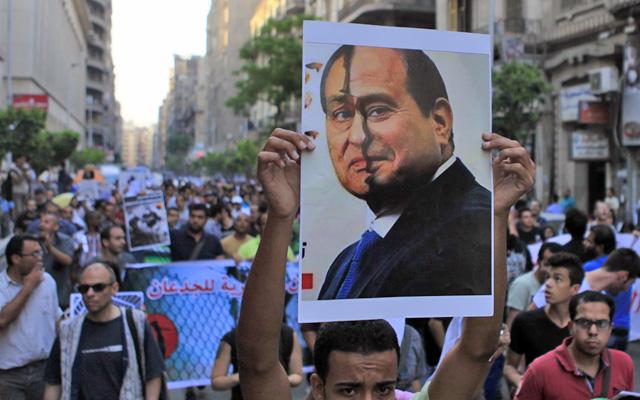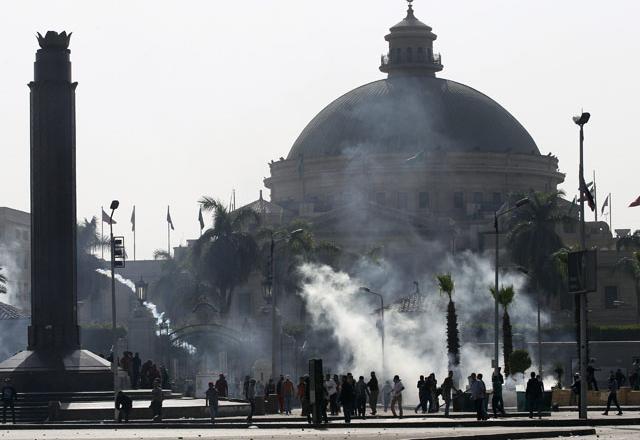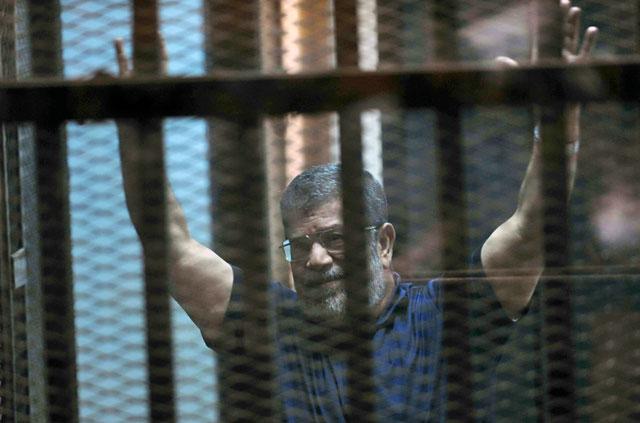You are here
Egypt’s Sisi seeks ties with US on his terms
By AP - May 25,2014 - Last updated at May 25,2014

CAIRO — Egypt’s likely next president, retired military chief Abdel-Fattah Al Sisi, says ties with the United States and the West will improve after elections this week.
He is confident that a strong show of public support will prove that Egyptians wanted the ouster of the country’s Islamist president, which threw relations between Egypt and the US into their worst strains ever.
But it will likely be a troubled road towards warming the chill between Cairo and Washington. Egypt’s security forces have waged a fierce crackdown against the Muslim Brotherhood and other Islamist backers of ousted president Mohamed Morsi, as well as against secular-minded youth activists.
Asked in a recent TV interview whether the Brotherhood will no longer exist under presidency, Sisi replied in the affirmative: “Yes. Just like that.”
Sisi, considered certain to win presidential elections taking place Monday and Tuesday, has made clear he wants better ties — but on his terms.
The retired field marshal has also raised worries in Egypt and the United States over potential restrictions on freedoms and civil rights, with his tough line against dissent as he pushes for stability he says is needed to repair the economy.
Tamara Cofman Wittes, the director of the Saban Centre for Middle East Policy, described the Egyptian-US relations as in a moment of reflection because direction is not clear.
Both sides “know their relations are important. They value the cooperation... but publicly they are reluctant to engage”, Wittes said.
Sisi removed Morsi on July 3 after protests by millions demanding that the Islamist leader go — and since then, supporters of the move have furiously rejected the idea that it was a military coup, saying the ouster was the people’s will.
After much deliberation, Washington decided not to declare it a coup, a step that would have required a cut-off in aid. Still, after hundreds of Morsi’s protesting supporters were killed in an escalating crackdown in August, the United States withheld millions of the more than $1.5 billion in aid a year that it provides Egypt — mostly to the military.
Also, Washington left the post of its ambassador in Cairo vacant after the departure of Anne Patterson — now an assistant secretary of state — who was fiercely criticised by many Egyptians who accused her of supporting the Brotherhood.
Since Morsi’s ouster, Egyptian media have been enflamed with anger at the United States, accusing it of backing the Brotherhood, raising conspiracy theories about the United States working with the Islamists to divide Egypt.
Sisi has avoided that sort of rhetoric.
In interviews with Egyptian media in the past weeks, he has said he understands the US has laws that require it to take the steps. He has also insisted Washington must understand why he and the military acted, both in Morsi’s ouster and the ensuing crackdown, in which hundreds have been killed and thousands arrested.
“We are giving them the chance to see,” he said of the Americans in one TV interview. “We always tell them... ‘See us with Egyptian eyes. Live our reality’.”
He added that the election will show the US and the Europeans that the Egyptian people are behind him. “The relations will only return to warmth when the people go in millions to vote.”
Sisi has also put forward a common cause for better relations, warning of a rise of militancy in Egypt, Syria and Libya.
“The international community must cooperate to deal with terrorism, and we are with them,” he said. Otherwise, “they will have problems”, he added, pointing to European citizens fighting in Al Qaeda-inspired groups in Syria’s civil war or in Libya.
Security cooperation is one area where the alliance has continued. Egypt has been working closely with the US and with Israel in its offensive against Islamist militants in the Sinai Peninsula, who have stepped up a campaign of bombings and other attacks since Morsi’s ouster.
In April, Egyptian intelligence chief Mohammad Farid Tohamy visited Washington for talks with Secretary of State John Kerry.
Egyptian Foreign Minister Nabil Fahmy also met with Kerry in Washington, a trip seen as a sign of easing tensions.
“It’s like a marriage. It’s not a fling; it’s not a one-night affair,” Fahmy said of relations with the US. “it’s going to take time... Any marriage has its hiccups.”
During the visit, Kerry certified to Congress that Egypt is upholding its peace treaty with Israel and strategic commitments to the US, freeing up $680 million in assistance. The Pentagon also released a hold on the delivery of 10 Apache helicopters to Egypt to help its military combat extremists.
But the $650 million are in jeopardy after Senator Patrick Leahy, a Democrat, raised objections on the Senate floor. Kerry has not yet certified that Egypt is meeting the democratic standards required for the remainder of the $1.5 billion in US assistance to be sent.
Kerry said Washington has made progress in its democratic transition but that it needs to address “disturbing” problems.
“We really are looking for certain things to happen that will give people the sense of confidence about this road ahead,” he said. “It’s actions, not words that will make the difference.”
Washington-based Middle East Institute scholar Mohamed Elmenshawy said that “Washington is leaving the door half open”.
“They are watching for free elections, they are watching for signs of reconciliation knowing that keeping pressure on political Islam won’t work on the long run,” he said.
Wrangling over the US ambassador has also been a sore point. Patterson departed soon after Morsi’s overthrow, and the Obama administration initially suggested Robert Ford, the former US ambassador to Syria, to fill the Cairo post.
But it didn’t nominate him after objections from Egyptian officials. Egyptian media had been depicting Ford as having a pro-Islamist agenda.
It was months until the administration finally put forward a nominee, earlier in May — Stephen Beecroft, the current ambassador in Iraq.
“Finding an alternative was not high” on the administration’s agenda, said Jon Alterman, a prominent Egypt expert who directs the Middle East programme at the Washington-based Centre for Strategic and International Studies.
“The US won’t be begging Egyptian government to have an ambassador. If you don’t want Ford, we will wait.”
“There is a growing sense that Egypt is not embracing liberal democratic principles... that government efforts to crack down will actually lead to violence, polarisation and increase the problem of extremism rather than end it,” said Alterman.
Related Articles
Abdel-Fattah Al Sisi, the Egyptian military chief who last summer removed the elected Islamist president, announced Wednesday that he has resigned from the military and will run for president in elections scheduled for next month.
An Egyptian court sentenced ousted president Mohamed Morsi and over 100 others to death Saturday over a mass prison break during the 2011 uprising that toppled Hosni Mubarak and later brought Morsi's Islamist movement to power.
Jordan and the US on Sunday stressed the importance of cooperation among all relevant parties and the international community to confront developments in Iraq that threaten the security of the whole region.



















